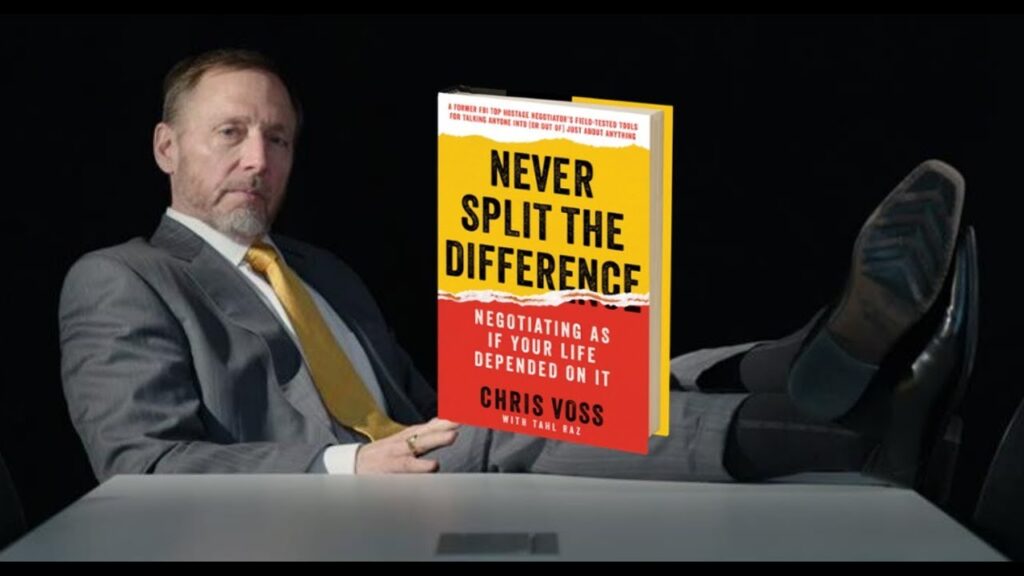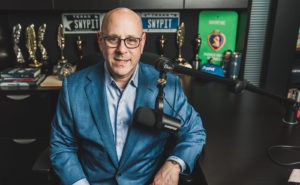The Art of Negotiation with Chris Voss

Blog

From the Police Force to Hostage Negotiation for the FBI
Because I read the book, I knew that Chris started out on the police force in Kansas City, Missouri. I asked him to share his story of how he made the transition from cop to FBI. Chris shared that he was trying to make the SWAT team on the police force. He was getting a little bored. He knew he wanted to grow and learn more and help more. His father encouraged him to go into federal law enforcement. At some point along the way, Chris met a secret service agent who told him that hi job had him traveling all over the world. That sounded like a cool job to Chris. So, he applied to the FBI, to hired, sent to Quantico for training. And, then he said, “My world expanded.” For Chris the move was all about growth and making a difference.
The transition to hostage negotiator came later. Chris shared that he still wanted to be on a SWAT team. Though he didn’t make it with the police department, when he joined the bureau, he did get to the FBI SWAT team. He was sent on a few operations through his position in Pittsburgh, then got transferred to New York. During his time in New York he tried out the the FBI’s hostage rescue team, which Chris said is the FBI’s version of the Navy Seals. He said that all these guys on this team do is train and practice for tactical events. While training, Chris reinjured his right knee, something he still deals with today. The injury prevented him from staying with the SWAT team, but he knew he wanted to stay in crisis response. Chris said, “I like it when people have to make decisions. Procrastination is the bane of my existence.” He added, “You know, the risks and costs of comfortable inaction, as Kennedy said, far outweighs the cost of making mistakes.”
Chris didn’t know what the hostage negotiators did, but he did know they were not with the SWAT guys. He just thought, “How hard could it be I talk to people every day?” As you can only imagine, it’s far more complex than that, but when I got into it and I got trained I loved it. It was more satisfying than being on SWAT ever was and I love SWAT.
Applied Emotional Intelligence
As Chris pointed out in our conversation, the basis of negotiation whether you’re negotiating a business deal, or a hostage release is basically applied emotional intelligence. According to Chris, curiosity is an indication of emotional intelligence, and he considers curiosity to be a superpower! He basically sees that curiosity starts to ramp up learning and all education is a result of experience. The mechanism that can be identified to shorten everybody’s learning curve, Chris shared, is called labeling. He said that labels are basically when we name an emotion, dynamic, or an instinct. It’s identifying the feeling that you experience in the moment. He gave the example of a salesperson going for a “yes.” He said most people are just going for that “yes”, they’re not really listening to the emotions behind the yes. So even if they get the “yes” they’re looking for, it may not be a solid sale. If your emotional intelligence is high you may sense the person is holding back. When you’re wanting to develop a long-term business relationship, you want the other person to know you’re really listening. So you might sense they’re holding back and say to them, “it seems like something’s holding you back.” Then the conversation can really begin. This approach builds trust. Chris told me that this is a technique they came upon through hostage negotiation and crisis intervention. This allows people to give you the unvarnished truth instead of thinking about and constructing an answer. When you really want to build a great relationship and move forward together, you want the real answer with all of its warts and ugliness. You want the good and the bad.
Mirror Neurons
I asked Chris to talk about mirroring behaviors as a method of disagreeing with someone without being disagreeable. Chris talked about mirror neurons from a layman’s perspective.
As Chris pointed out, “Being the lead, you’re the person the one you’re negotiating with is going to mirror. So remember “calm is contagious. Enthusiasm is contagious. Smiling is contagious.” The mirror neurons pick up whatever emotion you are exhibiting. So, in a tense situation if you’re calm it helps others in the room feel calm.
There’s so much more to my conversation with Chris that you can watch by clicking HERE.
You can learn more about The Black Swan Group and Chris Voss by going to the website: blackswanltd.com. And do yourself a favor and read Chris’s book, Never Split the Difference.
